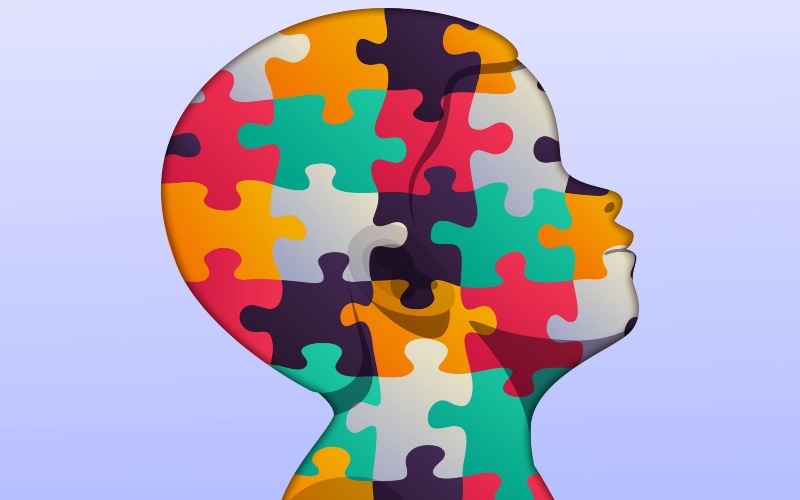Northern Kenya PWDs chairperson sounds alarm over lack of autism support

According to Hafid Maalim, autism remains a low priority for authorities, particularly regarding awareness, specialised education, therapy services, and caregiver support, despite appeals.
The Chairperson for Persons with Disabilities (PWDs) in Northern Kenya, Hafid Maalim, has expressed concern over the lack of government support for autistic individuals and caregivers, especially in underserved regions.
Speaking in Garissa town, Maalim highlighted the significant challenges faced by autistic people, including vulnerability to bullying and physical harm, since most autistic individuals are minimally or non-verbal, complicating social integration without tailored aid.
More To Read
- Scientists warn persistent thyroid imbalance during pregnancy raises autism risk
- Senate demands swift compliance with disability access in public offices
- Kenya Power awards Sh3.5 billion in tenders to youth, women and PWDs
- Only 4 per cent of public institutions meet disability hiring quota - survey
- Persons with Disabilities Act 2025 explained: Mocking PWDs punishable by law
- Older men’s sperm more likely to carry disease-causing mutations, study reveals
He stressed that these issues compound difficulties for families, many of whom suffer in silence.
According to Maalim, autism remains a low priority for authorities, particularly regarding awareness, specialised education, therapy services, and caregiver support, despite appeals.
He called for targeted government intervention, including establishing specialised autism centres in northern Kenya and beyond, investing in caregiver training, and promoting early diagnosis and intervention through public health platforms.
The chairperson urged collaboration between government, local leaders, and disability organisations to develop culturally sensitive, community-based support, noting stigma remains a major barrier to inclusion.
“Empowering the autism community is not just a moral imperative but also an investment in the future,” he said. “By fostering a more inclusive and supportive environment, we can unlock the incredible potential of those with autism, enabling their active participation and contribution to society.”
What is autism?
According to the World Health Organisation (WHO), autism is part of a group of related conditions under autism spectrum disorder (ASD). It begins in early childhood but is sometimes not recognised or diagnosed until later.
People with ASD often face persistent difficulties with social interaction and communication alongside repetitive behaviours or interests. These signs usually appear in early childhood, even if diagnosed later.
Globally, around 75 million people are estimated to be on the autism spectrum. In Kenya, this number is approximately 2.2 million.
A 2022 study published in the South African Journal of Psychiatry examined autistic traits among 8,918 Kenyan adolescents and young adults aged 15 to 25. About 87 per cent were college or university students, with the remainder drawn from urban and rural communities, all fluent in English.
Researchers measured autistic traits using the Autism Spectrum Quotient (AQ), a standardised self-report tool. Participants were categorised into three groups based on their AQ scores: low autistic traits (below 25), borderline traits (26-31), and high autistic traits (32 or above).
The study found that 0.63 per cent of participants exhibited high autistic traits, with a higher rate among non-students from the community (0.98 per cent) compared to 0.58 per cent among students. Nearly 15 per cent scored in the borderline range. The AQ showed strong reliability, with a Cronbach's alpha of 0.91.
Males accounted for about 70 per cent of the high autistic traits group. Gender distribution was more balanced in the low and borderline groups, though males were still slightly more prevalent. Older participants tended to have somewhat lower AQ scores, suggesting traits may become less apparent or better managed with age.
Participants with high autistic traits generally had lower education levels and came from families with less formal education and poorer households, often lacking basic services like electricity, piped water, and sanitation.
The study also reported higher levels of mental health symptoms, including psychosis and mood disorders, and greater stress linked to school, friendships, romantic relationships, and family issues. Financial stress was high across all groups but showed no significant differences.
The strong links between autistic traits and social, economic, and mental health vulnerabilities emphasise the urgent need for inclusive support systems to prevent educational exclusion and social isolation, and to address higher psychiatric risks.
Additionally, the rise in autism diagnoses globally is attributed to better awareness, improved diagnostic tools, and expanded criteria capturing milder forms. Environmental factors such as air pollution and maternal stress have also been suggested as contributors.
For example, the US CDC reported 1 in 36 eight-year-olds diagnosed with autism in 2020, up from 1 in 44 in 2018.
Top Stories Today












































